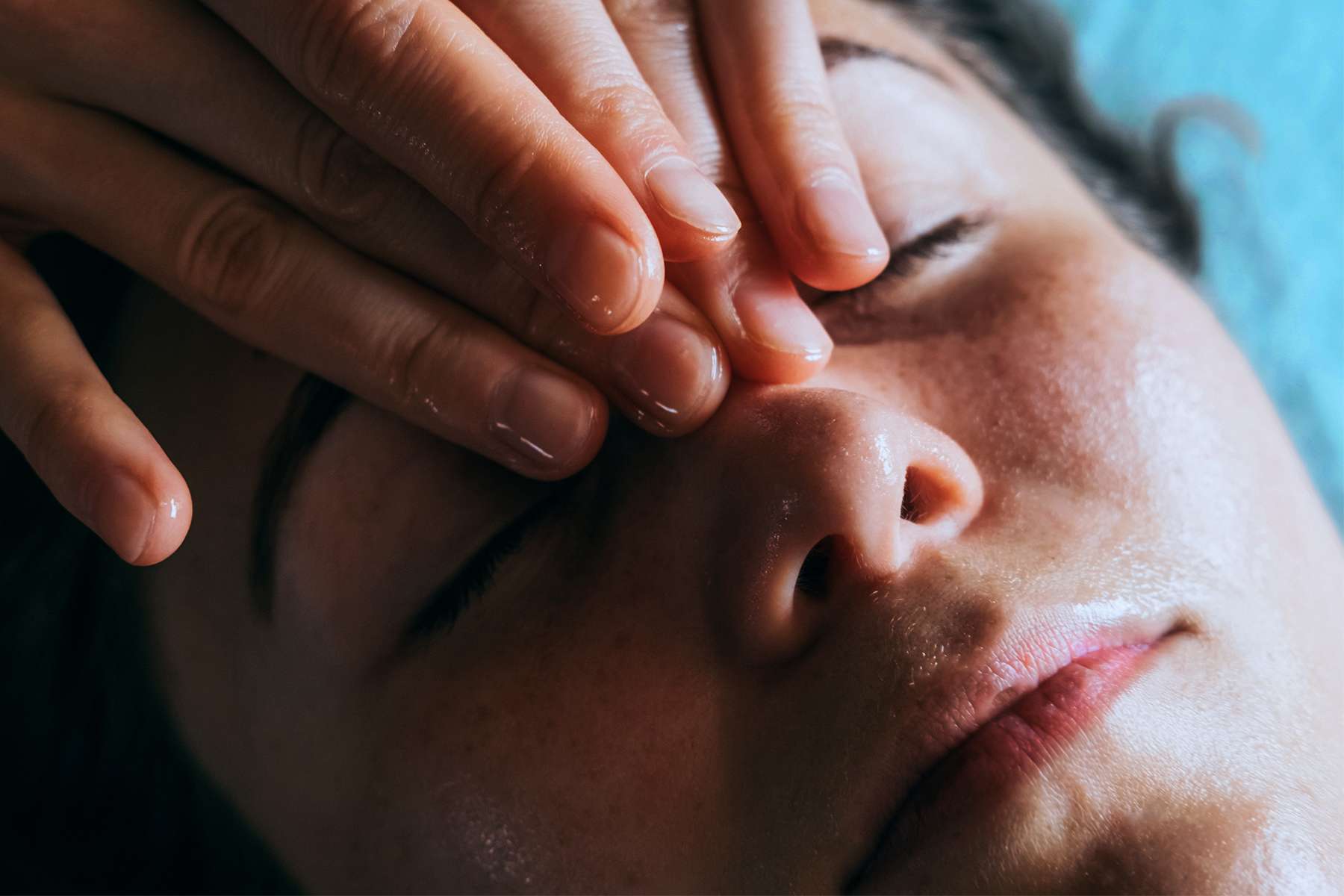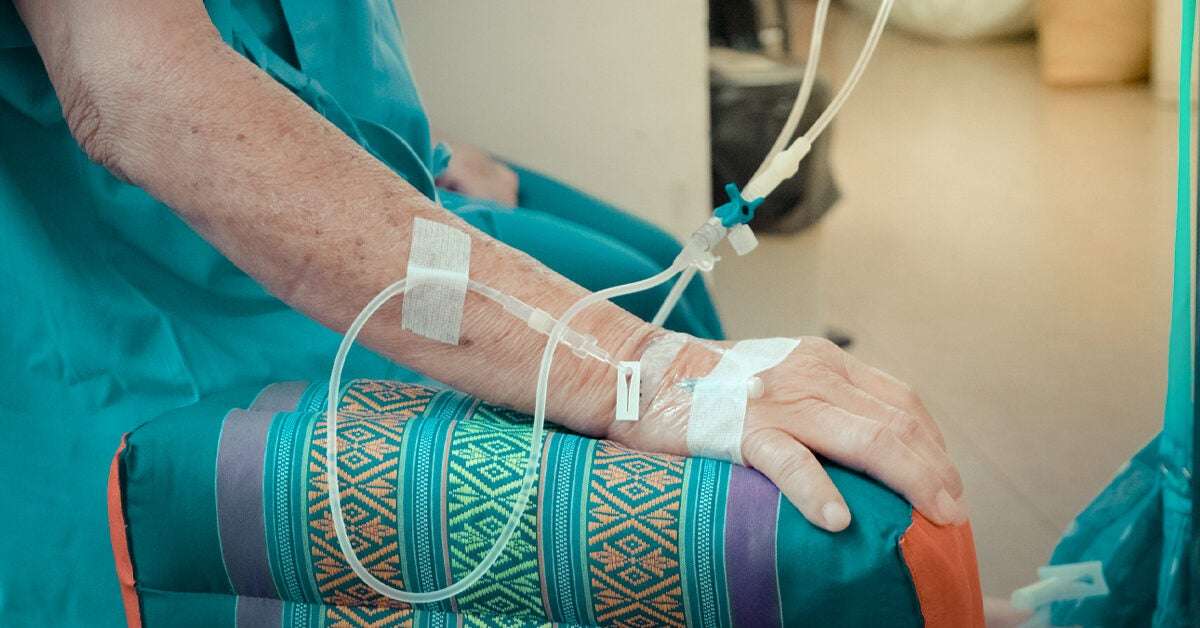If you’re experiencing tension, stress or pain, a little bit of touch may be just what you need. Massage — a general term for pressing, rubbing, and manipulating your skin, muscles, tendons, and ligaments — has been used for thousands of years in many cultures to heal, soothe, and relieve physical and emotional pain.
Today, massage is being offered more frequently along with standard treatment for a wide range of medical conditions and situations including issues with mental health. Mayo Clinic recognizes the value of massage therapy as an aspect of wellness and has been integrating massage therapy into the hospital setting for almost 20 years.
A massage may help you relax. But it can’t cure everything that ails you. And if performed incorrectly, it could hurt you. Learning about massage before you have it can help ensure that the experience is safe and enjoyable.
What makes it effective?
Massage is effective for several reasons. First, muscles and tissues are being manipulated in a structured and purposeful way. This movement can help reduce pain, align the body and improve posture. Second, massage harnesses the power of human touch. Environment also plays a role in the healing power of massage. For instance:
- Massage usually occurs in a safe, quiet, pleasant space.
- Aromatherapy is often used to assist in relaxation or address symptoms.
- Relaxing, soothing music generally plays during a session.
- Natural elements and plants also may be present, helping to promote thoughts of health and healing.
In most studies of massage therapy, researchers have found that people say their overall well-being is improved. Several studies also suggest that massage makes positive changes to the body, including a decrease in some stress chemicals, such as cortisol. Beyond its specific treatment benefits, people enjoy massage because it often involves caring, comfort, a sense of empowerment and a connection with a massage therapist.
Despite the many benefits, massages should not replace conventional medical care. As with all integrative therapies, tell your doctor you’re trying massage and be sure to continue your standard treatment plans.
What the research says.
Massage effectively reduces stress, pain, and muscle tension. Researchers find that massage releases endorphins— the body’s natural painkillers. It can also reduce the heart rate and may even impact the immune system. Specific areas of benefit include:
- Mental health and wellness —Massage therapy offers benefits for a number of mental health conditions, including depression, anxiety and stress. Research also shows that massage can help people coping with seasonal affective disorder by improving mood and boosting energy levels.
- Pain — Massage is useful for chronic low back pain and neck pain, rheumatoid arthritis, osteoarthritis of the knee, burn rehabilitation or pain from scar tissue, and pain after heart surgery.
- Fibromyalgia — In terms of pain management, fibromyalgia has been a specific area of study for massage research. Researchers see potential benefits in the use of massage to relieve fibromyalgia symptoms if the therapy is continued long term.
- Heart health — In addition to relieving pain after heart surgery, massage may be therapeutic from a prevention standpoint. Massage therapy has been shown to help lower blood pressure and manage stress, both of which can promote heart health.
- Aging — Massage therapy treats the aches and pains of aging and helps manage chronic pain. Researchers have found that regular massage promotes relaxation and stability and even lessens the effects of dementia, high blood pressure and osteoarthritis.
- Cancer — Massage may reduce pain, improve mood, promote relaxation and improve sleep in people with cancer. A massage therapist must take special precautions when treating someone with cancer, so finding a skilled therapist is important.
Risks of massage
Most people can benefit from massage, but it’s not appropriate for everyone. If you have had a recent heart attack, have a bleeding disorder or are taking blood-thinning medication, talk to your doctor first. Also talk to your doctor before trying massage if you’ve had a recent blood clot in your leg or you have newer burns, fractures, or severe osteoporosis; massage may be harmful in these cases. Massage should not be performed directly on tumors, and people with healing wounds or nerve damage should avoid pressure on affected areas of the body. Keep in mind that you shouldn’t feel significant pain during a massage, although some forms can leave you feeling a bit sore the next day. If a massage therapist is pushing too hard, ask for lighter pressure.

Relevant reading
Mayo Clinic The Integrative Guide to Good Health
Shop Now

In the United States, almost half of adults will experience a mental health challenge during their lifetime. A growing body of research is supporting the positive impact of massage therapy for relief of stress, anxiety, and depression. In fact, many studies indicate it can provide benefits similar to psychotherapy for certain conditions. Read on to learn more about the ways massage can improve mental health and well-being.
Massage Therapy Can Relieve Stress
Stress is prevalent in today’s fast-paced world and can negatively affect people’s health and well-being. Massage therapy has shown to significantly reduce stress on both physical and psychological levels. While massage therapists know from experience that massage reduces stress, there is also considerable research that validates our experience.
Related Studies
- In a study on the effects of trigger point therapy, there was a significant decrease in heart rate, systolic blood pressure, and diastolic blood pressure.
- Measures of oxygen consumption, blood pressure, and salivary cortisol levels were all lower after a 10-to-15 minute chair massage in controlled studies.
- Research shows that massage for nurses during work hours can help to reduce stress and related symptoms, including headaches, shoulder tension, insomnia, fatigue, and muscle and joint pain.
Massage Therapy for Anxiety
According to the National Institute of Mental Health, over 40 million adult Americans suffer from anxiety disorders. Anxiety can negatively shape the quality of life for individuals affected. Massage therapy can be an effective treatment by elevating neurotransmitters associated with lowering anxiety and decreasing hormones associated with increasing anxiety.
Related Studies
- Research supports that massage can relieve stress in psychiatric patients, those with chronic pain, cancer patients, children with illnesses, patients with generalized anxiety disorder, the elderly, and healthy adults.
- Research published in Applied Nursing Research shows that back massage given during chemotherapy can significantly reduce anxiety and acute fatigue.
- A study published in Military Medicine reports that military veterans indicated significant reductions in ratings of anxiety, worry, depression, and physical pain after massage. The analysis also suggests declining levels of tension and irritability following massage.
Massage Therapy for Depression + Seasonal Affective Disorder
For many who suffer from depression, the first solution is psychotherapy, where a person sees a trained mental health professional to talk (and at times medication is prescribed). Now, people are also beginning to better understand how a combination of treatment options can be beneficial, and massage therapy is showing great promise in alleviating depression and Seasonal Affective Disorder.
Related Studies
- The effect of massage therapy on trait anxiety and depression is virtually the same as those routinely found in the research studies of psychotherapy for people with the same conditions.
- Research indicates that massage can improve mood and reduce depression in those living with chronic pain, as well as in cancer patients, pregnant women, and people living with chronic disease.
- One in five Americans are impacted by Seasonal Affective Disorder; leaving many people feeling depressed and lethargic. Studies show that regular massages can improve mood and reset circadian rhythms, leading to improved mood, better sleep, and more energy.
Did you know that aside from physical benefits, massage therapy also provides numerous mental and emotional benefits?
Massage therapy, broadly defined, is the manual manipulation of muscles and certain other soft tissues in the body, including connective tissue, ligaments, and tendons, with the purpose of improving a person’s health and well-being. Licensed massage therapists are highly-trained and well-versed in anatomy and physiology, and they use their expertise to improve wellness in a variety of ways.
Let’s take a look at some of the practical mental benefits that come from participating in massage therapy.
1. Improve your relaxation skills:
When people become relaxed, their heart rate, blood pressure, oxygen consumption, and salivary cortisol levels decrease. This helps reduce stress and anxiety, which are the two leading causes of depression.
Great news! You don’t even need to schedule an hour-long Swedish massage to reap the short-term benefits of a quick massage. Studies have shown that physiological and psychological changes occurred even after 10-15 minute-long chair massages. No matter how busy your schedule is, you can easily make time for a short chair massage. For even more significant benefits, try combining massage therapy with aromatherapy.
2. Rest more efficiently:
Massages aren’t only useful for in-the-moment relaxation. Massages have been shown to improve sleep patterns in all types of people including children, adolescents, and adults that suffer from insomnia, cerebral palsy, fibromyalgia, migraines, and more.
Research has demonstrated that those who received a 30-minute massage twice a week for five weeks reported a significant decrease in pain, which led to fewer sleep disturbances.
Tip: If professional massages aren’t financially doable, recruiting your partner as your massage therapist can help! Even a light 3-minute massage before going to bed can make a difference.
3. Alleviate the symptoms of chronic illnesses and diseases:
People suffering from chronic illnesses and diseases also experience higher stress levels. Elevated stress can worsen the chronic condition which, in turn, can lead to even more stress, all creating a vicious cycle. While massage therapy hasn’t been proven to cure any disease, it has been found to improve the quality of life for many individuals.
For example, children with cancer who have regular massages were found to have reduced side effects from their cancer treatment such as reduced pain, anxiety, and depression. This has the added benefit of placing the child in a better psychological and physiological state to better battle their illness.
4. Increase your overall happiness:
Massage therapy has been known to lower stress, decrease anxiety, and reduce irritability. Along with increasing brain serotonin and dopamine, the combination of these effects lead to a happier individual. Being a happier person can have an infinite number of effects on their personal life and the lives of those around them.
While scheduling regular messages isn’t financially plausible for everyone, it should be carefully considered for people looking for a holistic way of improving their mental health.
For more information on the benefits of massage therapy, we invite you to download our career resource —
A Career Guide to Becoming a Massage Therapist.





